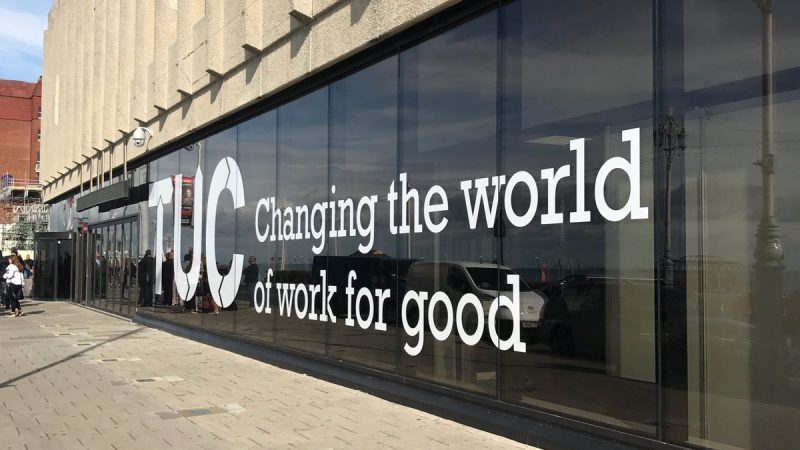
Analysis published by the TUC has found that extending statutory sick pay protection to all workers, by removing the ‘lower earnings limit’, would cost the same as 1% of the budget provided for the NHS test and trace programme.
In the research released today, which examined people excluded from statutory sick pay because they earn on average less than £120 per week, the trade union federation found that as many as one in 12 key workers do not qualify.
According to the analysis, those excluded from sick pay protection across the country included more than a quarter of cleaners (27%) and retail workers (26%), nearly one in ten teaching assistants (9%) and over one in 20 care workers (6%).
TUC-commissioned polling carried out in May also saw 33% of key workers report that they receive less sick pay than their full rate of pay while 24% of respondents said that they get only the £96 per week statutory minimum.
The TUC has called for the lower earnings limit to be removed, at a cost of 1% of the test and trace bill or £150m per year, and for the rate of statutory sick pay to be raised to the level of a real living wage of £330 per week.
Fabian Society research this month showed that the cost of raising sick pay to the equivalent of the real living wage for employers without an occupational sick pay scheme would be around £110 per employee per year, or just over £2 a week.
TUC general secretary Frances O’Grady said: “Nobody should have to choose between going into work if they’re sick or should be self-isolating, or doing the right thing by staying home but facing hardship as a result. But that’s the choice facing many key workers who kept the country going during the pandemic.
“Our key workers deserve the dignity, security and safety of proper sick pay and a decent pay rise too. They have earned it, often in frontline jobs with much greater risk of infection than those who could work from home.
“The cost of fixing the UK’s broken sick pay system is small compared to other public health measures like test and trace. Ministers must urgently make every worker eligible for statutory sick pay. And it should be worth at least as much as the real living wage.”
Following the publication of a cross-party report on test and trace earlier this year, O’Grady argued that the refusal of ministers to raise the level of sick pay, which is among the lowest in Europe, “massively undermined” the programme.
Labour has repeatedly criticised ministers for “not paying people decent sick pay to isolate themselves” while TUC research last year found that 43% of people in the UK could not afford to stay away from work after contracting Covid.
Head of the government’s test and trace system Dido Harding raised concerns herself early during the pandemic about the absence of support for people facing the need to take time off work to protect others from the virus.
She told a press briefing last July: “It’s particularly challenging for that workforce… I continue to make the case that we need to think about how we support people in those lowest paid roles and the self employed.”
The government introduced the NHS test and trace support payment of £500 for people in England required to self-isolate, who are unable to work from home during their period of self-isolation and who will lose money as a result.
A freedom of information request revealed earlier this month that more than six out of 10 applications for payment were being refused, despite the government having increased funding for the anti-Covid system in March to £20m per month.




More from LabourList
‘As metro mayors gain power, Labour must tighten political accountability’
Letters to the Editor – week ending 22 February 2026
‘The coastal towns where young people have been left behind by Whitehall’